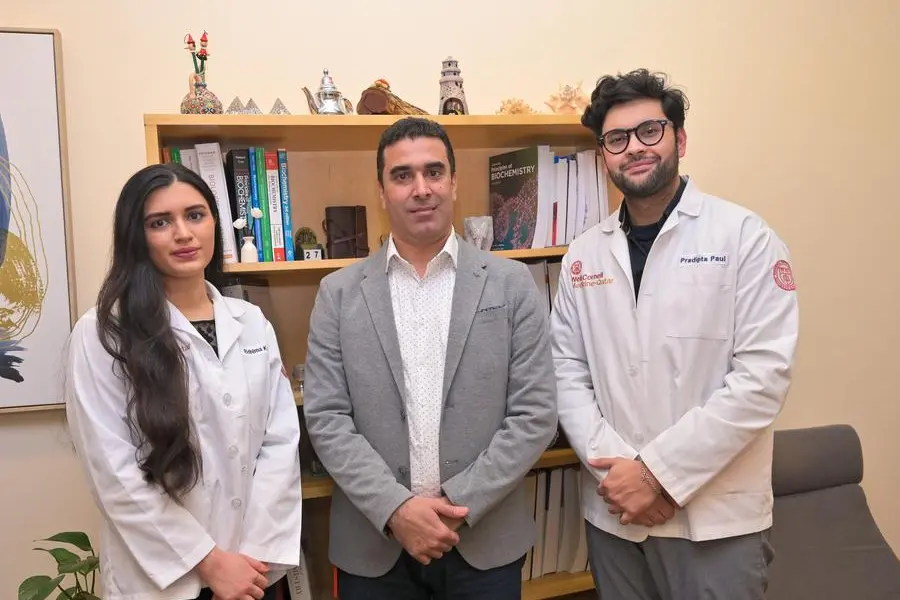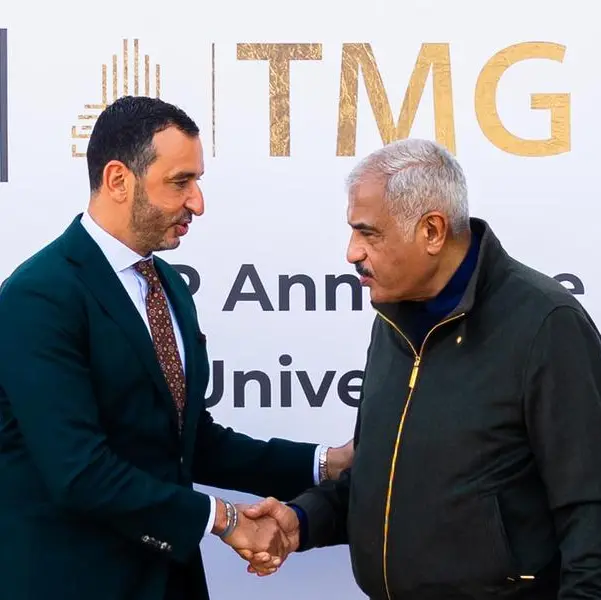PHOTO
Doha – Students at Weill Cornell Medicine-Qatar (WCM-Q) have published a series of papers investigating the efficacy of microbiome-modulating therapeutics such as probiotics, prebiotics and synbiotics for managing type 2 diabetes.
Over a period of two years from 2021 to 2023, medical and pre-medical students at WCM-Q screened more than 10,000 scientific publications to collect, summarize and present results from randomized control trials.
The resulting papers were published in world-renowned, peer-reviewed scientific journals in the fields of metabolism, nutrition and pharmacology, and have already amassed a total of 37 citations in a very short space of time.
The studies were prompted by research in recent years which has shown that some microbiome-modulating therapies, such as supplements of probiotics (helpful gut bacteria) and prebiotics (non-digestible fibers that help probiotics to grow), can help with management of type 2 diabetes by improving glycemic control and lipid profile, and reducing inflammation. Synbiotics are combinations of probiotics and prebiotics.
Mentored by Dr. Ali Chaari, Assistant Professor of Biology, the students led the projects themselves and formed to draw upon the expertise of faculty and staff in various WCM-Q departments, including the Health Sciences Library and the Infectious Disease Epidemiology Group (IDEG). In addition, the students forged an international collaboration with researchers at Tulane University School of Medicine in New Orleans.
Students involved in the research include Pradipta Paul, Ridhima Kaul, Basma Abdellatif, Maryam Al-Arabi, Yousef Al-Najjar, Aparajita Sarkar, Anfal Khan, Surin Lee, and Ibtihal Kamal. Other authors of these projects include Dr. Rohit Upadhyay of Tulane University, Dr. Majda Sebah, assistant professor of chemistry at WCM-Q, Ms. Manale Harfouche of the IDEG at WCM-Q, and Ms. Reya Saliba, formerly of the Health Sciences Library at WCM-Q. The students began working on their first paper in November 2021 and continued the research part-time during their studies and in their summer and winter breaks, finally completing the last paper in December 2023.
Fourth-year medical student Ridhima Kaul, who is due to graduate in May, said: “Learning how to conduct a systematic review is quite taxing as there is a huge amount of data to sift through, but it has been extremely rewarding, and working with Dr. Chaari has been an absolutely extraordinary experience—I’ve learned so much.” Ridhima, who has secured a much-coveted place on the Internal Medicine residency program at the prestigious Cleveland Clinic to continue her training after graduation, added: “I was also thankful to be able to contribute as a mentor to pre-medical students who were interested in our work. And I am especially thankful to have had the opportunity to work on projects surrounding Internal Medicine, which I am certain contributed greatly to my success in seeking post-graduation positions.”
Type 2 diabetes is one of the most pressing health concerns both regionally and globally, with incidence rising rapidly in both developed and developing countries. Modulating the gut microbiome has emerged as a promising area of research for managing the condition.
Rising fourth-year medical student Pradipta Paul said: “When I started working with Dr. Chaari in the summer of 2021, I had no idea it would lead to such a longstanding working relationship with multiple successful projects. This was an amazing opportunity to learn about the exciting and rapidly growing field of microbiome-based therapeutics in diabetes, one of the leading public health concerns around the globe, especially in Qatar.”
Pradipta also provided mentorship and guidance to junior students to help them take their first steps in research, as well as working with Dr. Chaari on a subsequent project in the field of neurodegenerative and amyloid proteins, which led to the publication of several articles and the creation of a continuing medical education course to help regional healthcare professionals develop new competencies in dementia care.
In addition to publishing the research in scientific journals, the students also presented their findings at national conferences in Doha, with support from Qatar National Library, the WCM-Q Health Sciences Library, and the WCM-Q Pre-medical Division.Dr. Chaari said: “The students not only performed well and contributed useful insights to the overall body of knowledge in an important area of research, but also showed great commitment over a long period of time, excellent organizational, critical thinking and communication skills, and first-rate leadership and mentorship qualities towards their junior peers. I am sure these experiences will help to enhance their profiles as physician-scientists and open many doors for them in their future careers.”
About Weill Cornell Medicine-Qatar
Weill Cornell Medicine-Qatar is a partnership between Cornell University and Qatar Foundation. It offers a comprehensive six-year medical program leading to the Cornell University M.D. degree with teaching by Cornell and Weill Cornell faculty and by physicians at Hamad Medical Corporation (HMC), Aspetar Orthopedic and Sports Medicine Hospital, the Primary Health Care Corporation, the Feto Maternal Center, and Sidra Medicine, who hold Weill Cornell appointments. Through its biomedical research program, WCM-Q is building a sustainable research community in Qatar while advancing basic science and clinical research. Through its medical college, WCM-Q seeks to provide the finest education possible for medical students, to improve health care both now and for future generations, and to provide high quality health care to the Qatari population.
For more info, please contact:
Hanan Lakkis
Associate Director, Media and Publications
Weill Cornell Medicine - Qatar
hyl2004@qatar-med.cornell.edu




















